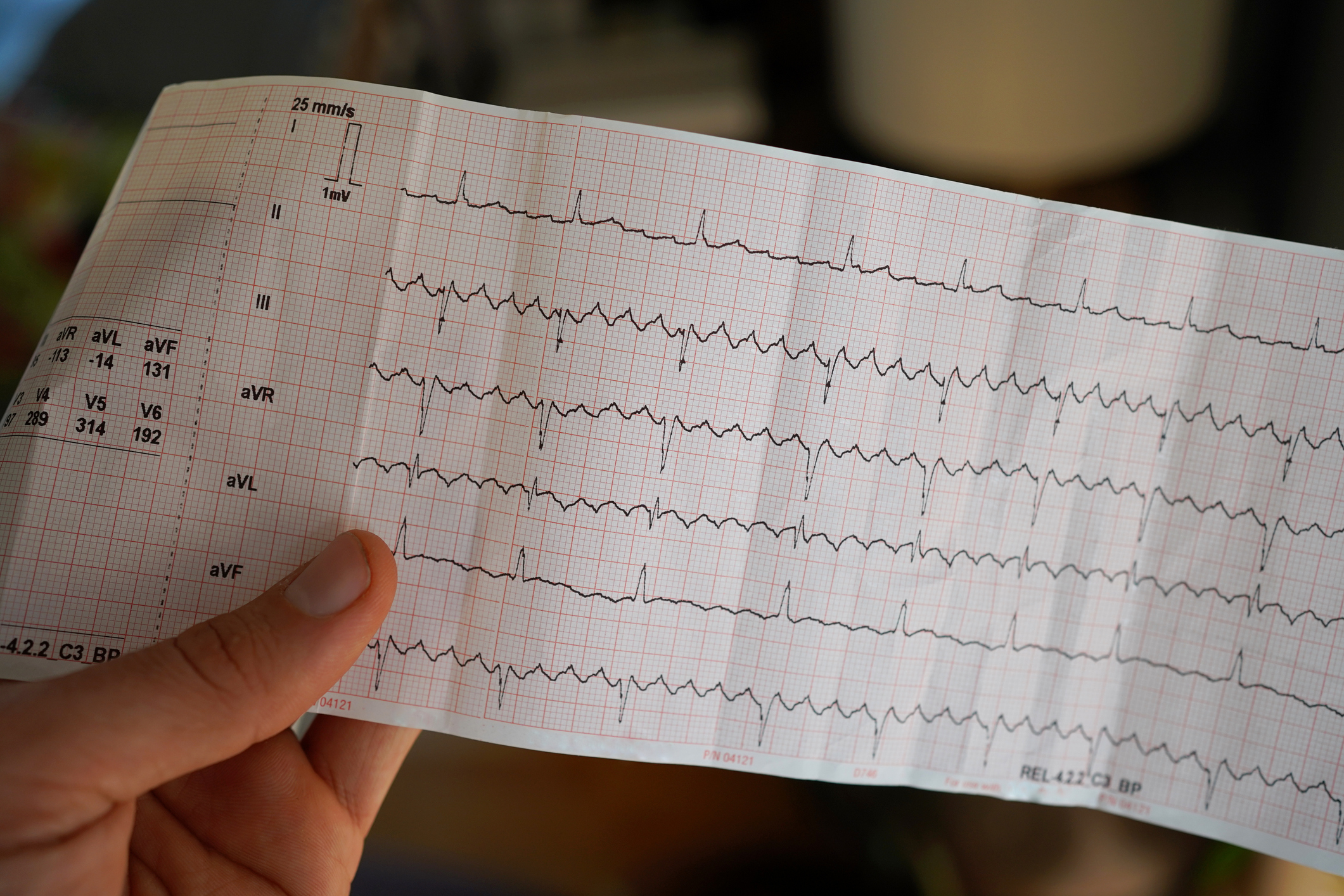Get Easy Health Digest™ in your inbox and don’t miss a thing when you subscribe today. Plus, get the free bonus report, Mother Nature’s Tips, Tricks and Remedies for Cholesterol, Blood Pressure & Blood Sugar as my way of saying welcome to the community!
Real or artificial: The sweet drinks linked to AFib

Sugar may taste sweet. But its health impacts are anything but.
Previous research has noted associations between the consumption of added sugars and 45 negative health outcomes — among them diabetes, obesity, gout, cancer, high blood pressure, heart attack and stroke.
Some people substitute artificial sweeteners for sugar. But those sweeteners carry their own health risks, including type 2 diabetes, weight gain, dementia, heart disease, stroke, Parkinson’s disease, inflammatory bowel disease and even colon cancer.
Now, investigators may be adding another condition to those lists….
Drinking sweetened beverages could cause AFib
Atrial fibrillation, or irregular heartbeat, increases the risk of stroke by five-fold. According to the American Heart Association, more than 12 million people are expected to have AFib by 2030.
A team of researchers in China reviewed genetic data and data from dietary questionnaires for more than 200,000 adults who were free of atrial fibrillation (AFib) at the time they enrolled in the UK Biobank. During the nearly 10-year follow-up period, 9,362 cases of AFib occurred among the study participants.
The researchers observed that people who drank two liters or more of sugar-sweetened beverages per week had a 10 percent higher risk of AFib. And those who drank a similar amount of artificially sweetened beverages saw their risk of AFib increase by 20 percent.
If you think two liters a week sounds like a lot, it’s the equivalent of drinking one 12-ounce can of regular or diet soda each day for 6 days a week.
And if you smoke, you can see the AFib risk go even higher…
Smokers who consumed more than two liters per week of sugar-sweetened drinks had a 31 percent increased risk of AFib. There was no significantly higher risk for former smokers or people who never smoked.
By contrast, people who reported drinking one liter or less of pure juice, such as 100 percent orange or vegetable juice, each week had an 8 percent lower risk of AFib.
Those who consumed more artificially sweetened drinks were more likely to be female, younger, have a higher body mass index (BMI) and a higher prevalence of type 2 diabetes. Those who drank more sugar-sweetened beverages were more likely to be male, younger, have a higher BMI and prevalence of heart disease and lower socioeconomic status.
Also, those who consumed sugar-sweetened drinks and pure juice were more likely to have a higher intake of total sugar than those who drank artificially sweetened beverages.
Lead study author Dr. Ningjian Wang, a researcher at the Shanghai Ninth People’s Hospital and Shanghai Jiao Tong University School of Medicine in Shanghai, China, says the mechanisms linking sweetened beverages and AFib risk are still unclear. However, there are several possible explanations, including insulin resistance and the body’s response to different sweeteners.
Wang cautions the study’s findings can’t definitively conclude that these beverages pose more health risk than others because of the complexity of people’s diets, including the fact that some people may drink more than one type of beverage.
Quench thirst, not your sweet tooth
This study adds to the body of evidence that both sugar and artificial sweeteners are risky for heart health.
“We still need more research on these beverages to confirm these findings and to fully understand all the health consequences on heart disease and other health conditions,” says Kris-Etherton, an emeritus professor of nutritional sciences at Penn State University who was a co-author of the AHA’s science advisory on artificial sweeteners. “In the meantime, water is the best choice, and, based on this study, no- and low-calorie sweetened beverages should be limited or avoided.”
If you have difficulty drinking plain water, try water infused with fruit and/or herbs.If you miss the carbonation from soda, you can drink plain sparkling water instead.
Remember that the body responds to most natural sweeteners like honey, maple syrup and agave the way it responds to sugar, so switching to those likely won’t make a difference health-wise. And if you choose the natural sweetener stevia, make sure it’s 100% pure stevia extract. Otherwise it likely contains erythritol, which is linked to increased blood clotting.
Unsweetened tea is another option. If you prefer a little flavor, consider herbal teas like peppermint, ginger, hibiscus or rooibos tea. I enjoy them iced with a squeeze of fresh lemon or lime. No sweetener needed!
Editor’s note: Are you feeling unusually tired? You may think this is normal aging, but the problem could be your master hormone. When it’s not working, your risk of age-related diseases skyrockets. To reset what many call “the trigger for all disease” and live better, longer, click here to discover The Insulin Factor: How to Repair Your Body’s Master Controller and Conquer Chronic Disease!
Sources:
Sweetened drinks linked to atrial fibrillation risk — EurekAlert!
Sweetened Beverages, Genetic Susceptibility, and Incident Atrial Fibrillation: A Prospective Cohort Study — Circulation: Arrhythmia and Electrophysiology














